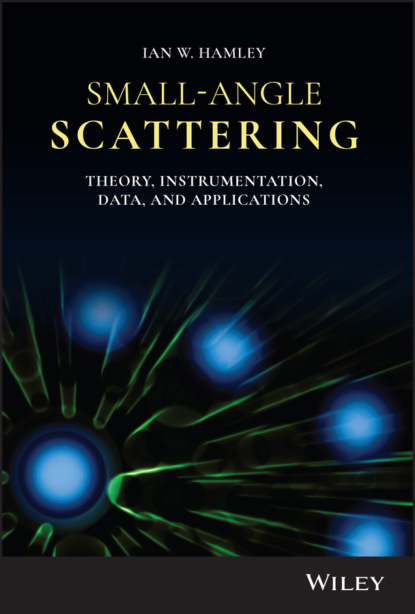SMALL-ANGLE SCATTERING A comprehensive and timely volume covering contemporary research, practical techniques, and theoretical approaches to SAXS and SANS Small-Angle Scattering: Theory, Instrumentation, Data, and Applications provides authoritative coverage of both small-angle X-ray scattering (SAXS), small-angle neutron scattering (SANS) and grazing incidence small-angle scattering (GISAS) including GISAXS and GISANS. This single-volume resource offers readers an up-to-date view of the state of the field, including the theoretical foundations, experimental methods, and practical applications of small-angle scattering (SAS) techniques including laboratory and synchrotron SAXS and reactor/spallation SANS.Organized into six chapters, the text first describes basic theory, instrumentation, and data analysis. The following chapters contain in-depth discussion on various applications of SAXS and SANS and GISAXS and GISANS, and on specific techniques for investigating structure and order in soft materials, biomolecules, and inorganic and magnetic materials. Author Ian Hamley draws from his more than thirty years’ experience working with many systems, instruments, and types of small-angle scattering experiments across most European facilities to present the most complete introduction to the field available. This book:Presents uniquely broad coverage of practical and theoretical approaches to SAXS and SANSIncludes practical information on instrumentation and data analysisOffers useful examples and an accessible and concise presentation of topicsCovers new developments in the techniques of SAXS and SANS, including GISAXS and GISANS Small-Angle Scattering: Theory, Instrumentation, Data, and Applications is a valuable source of detailed information for researchers and postgraduate students in the field, as well as other researchers using X-ray and neutron scattering to investigate soft materials, other nanostructured materials and biomolecules such as proteins. Это и многое другое вы найдете в книге Small-Angle Scattering (Ian W. Hamley)
Small-Angle Scattering Ian W. Hamley
Подробная информация о книге «Small-Angle Scattering Ian W. Hamley». Сайт не предоставляет возможности читать онлайн или скачать бесплатно книгу «Small-Angle Scattering Ian W. Hamley»
